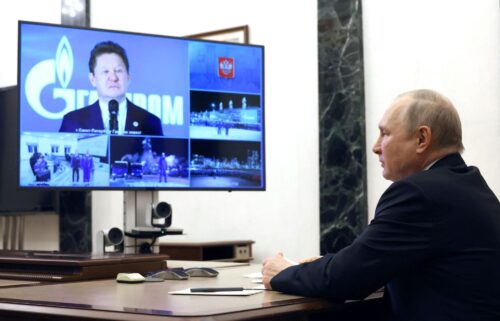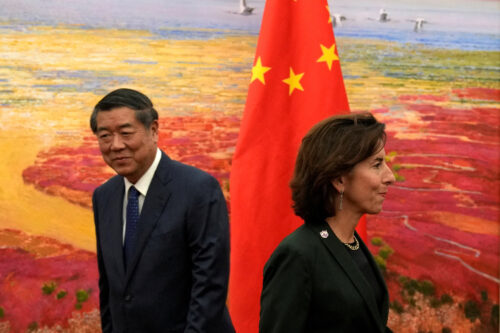Beyond Trumpism: What is the ‘smart’ direction for U.S.-China relations?

Are the U.S. and China headed into a “Cold War 2.0”? Some object to the very question.
Michael Swaine, a senior associate at the Carnegie Endowment for International Peace, balks at what he describes on Twitter as the “wholly overblown effort underway to redefine the US-China relationship as one of near Cold War adversaries.” His piece in Foreign Policy, titled “The U.S. can’t afford to demonize China,” argues against the trade war on multiple points.
Here is an essay by me castigating the wholly overblown effort underway to redefine the US-China relationship as one of near Cold War adversaries. I link it with a deep-rooted, “paranoid style” in US thinking identified decades ago by R. Hofstadter. https://t.co/RCnh8vTlAC
— Michael D. Swaine (@Dalzell60) June 29, 2018
He asserts that Washington, under Trump, has embraced a conspiratorial mindset that sees China and the U.S. in a zero-sum global power competition. This mindset has supported “hugely distorted” assumptions that often go unchallenged, including the myth that the U.S. ever explicitly sought democratization as the end goal of engagement, the unproven claim that China “seeks to eject the United States from Asia and subjugate the region,” and the questionable line of thought that “Beijing is committed to overturning the global order.” In effectively putting Washington and Beijing at each other’s throats in each interaction, these narratives frame every U.S.-China interaction as adversarial rather than cooperative. For more on Washington’s myth making about China, former diplomat Evan Feigenbaum recently wrote on the futility of American whining about China.
Swaine goes on to argue that a “major correction by both sides” is needed in the relationship because “hostile words and actions completely overshadow the obvious and pressing need for continued cooperation between Washington and Beijing in addressing common problems and concerns, including climate change, weapon of mass destruction proliferation, pandemics, the state of the global economic system, and stability in Asia.” People want to believe China is a global-order-wrecker, but forget that China has thrived in the current world system and wants to ensure its future success. Therefore, “Beijing supports many elements of the existing order, including some that the current U.S. administration rejects or undermines, such as the fight against climate change and the value of multilateral economic agreements.”
In fact, we would add that Trump’s America, it seems, is the only country with major economic interests in the Asia-Pacific that isn’t negotiating a major trade deal there at the moment. For example, “Ministers from the 16-nation Regional Comprehensive Economic Partnership, which includes China, Japan and India but not the U.S., met in Tokyo on Sunday to try and thrash out remaining differences,” Bloomberg reports (paywall). Additionally, “The 11-member Trans-Pacific Partnership trade pact, which does not include the U.S., will prepare for its next stage of expansion when chief negotiators meet in Japan in mid-July to discuss how to usher new members in,” according to Nikkei (paywall).
But what would a better relationship with China, particularly in economic ties between the two countries’ technology sectors, actually look like? A collection of experts on China’s economy and rising technological capabilities have weighed in via a ChinaFile discussion titled, “Should the U.S. Start a Trade War with China over Tech?”
Unsurprisingly, multilateral trade pressure over multiple domains — i.e., the exact opposite of Trump’s unilateral tariff-first tactics — is a widely suggested strategy. Several respondents note that technology transfer is a feature, not a bug, of China-U.S. economic entanglement. Yukon Huang, the China economy contrarian who was interviewed on the Sinica Podcast earlier this year, also pointed to an American Chamber of Commerce in China report that shows 96 percent of respondents think intellectual property rights are improving in China.
More investment in science and technology at home, and consistency in limiting Chinese investment only in cases of very obvious national security risk, is another common suggestion. Jack Zhang of Princeton University writes, “nothing would vindicate Chinese techno-nationalists more than for the U.S. to follow them down the road of state-intervention in the technology sector.”






